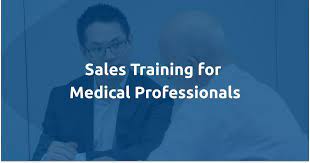In the competitive landscape of healthcare, effective medical sales courses is crucial for professionals aiming to excel in their careers. From pharmaceuticals to medical devices, the ability to effectively communicate, understand customer needs, and navigate regulatory landscapes is paramount. This article delves into the key strategies and best practices essential for mastering the art of medical sales training.
Understanding the Healthcare Landscape: Before delving into sales techniques, it’s imperative for medical sales professionals to have a comprehensive understanding of the healthcare landscape. This includes knowledge of industry trends, regulatory requirements, competitor analysis, and understanding the unique challenges faced by healthcare providers.
Product Knowledge: One of the cornerstones of successful medical sales is a deep understanding of the products or services being offered. Sales professionals must be well-versed in the features, benefits, and applications of their products. This knowledge not only instills confidence in customers but also enables sales representatives to effectively address any questions or concerns that may arise.
Building Strong Relationships: Building strong relationships with healthcare professionals is key to success in medical sales. This involves establishing trust, demonstrating value, and providing ongoing support. By understanding the needs and challenges of healthcare providers, sales professionals can position themselves as trusted advisors rather than simply product vendors.
Effective Communication: Effective communication skills are essential for medical sales professionals. This includes not only verbal communication but also active listening, empathy, and the ability to tailor messages to the needs of the audience. Whether communicating with physicians, administrators, or other key stakeholders, the ability to articulate the value proposition clearly and persuasively is crucial.
Navigating Regulatory Requirements: Navigating the complex regulatory landscape of the healthcare industry is another challenge faced by medical sales professionals. From FDA regulations to compliance standards, sales representatives must ensure that their interactions with healthcare providers adhere to all relevant guidelines. This requires ongoing training and education to stay abreast of changes and updates in regulations.
Continuous Learning and Development: In a rapidly evolving industry like healthcare, continuous learning and development are essential for success. Medical sales professionals should actively seek out opportunities for training, whether through formal programs, industry conferences, or self-directed learning. This not only enhances skills and knowledge but also demonstrates a commitment to excellence to both employers and customers.
Conclusion: Mastering the art of medical sales courses requires a combination of industry knowledge, product expertise, relationship-building skills, effective communication, regulatory compliance, and a commitment to continuous learning and development. By employing these strategies and best practices, medical sales professionals can position themselves for success in a dynamic and challenging field.

